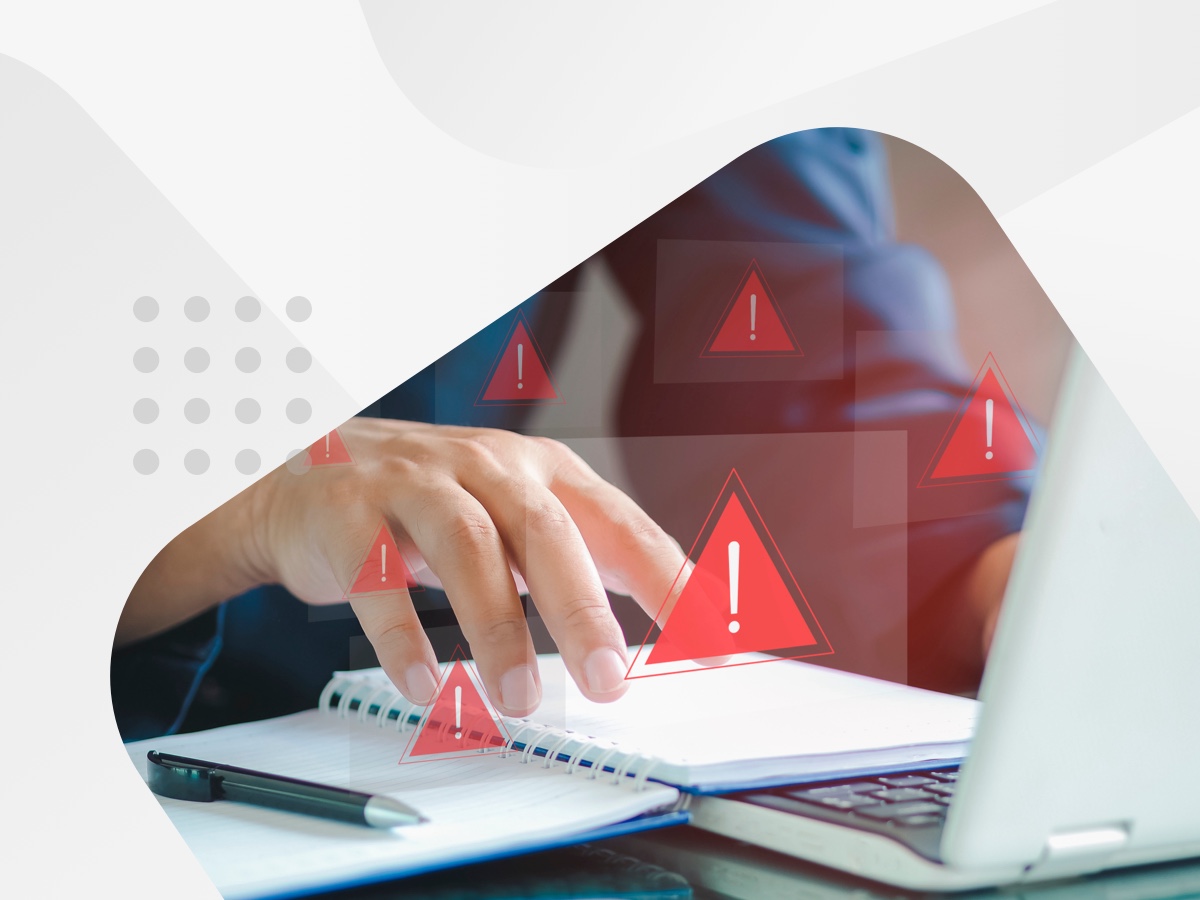In the latest episode of Business Insights we speak to CreditorWatch’s Victorian Sales Manager Hilbert Klaster about the practice of supplier hopping – the practice of moving from one supplier to another, leaving a trail of unpaid debts – why it is on the rise and how businesses can avoid being caught up in it.
Key points:
- What is supplier hopping?
- Why it is on the rise.
- How can you identify a supplier hopper?
- What can creditors do to protect themselves from the effects of supplier hopping?
- What should creditors do if they suspect a debtor/customer is supplier hopping?
INTERVIEW TRANSCRIPT:
Michael Pollack: Hello, and welcome to the latest episode of CreditorWatch’s business insights podcast. I’m Michael Pollack, the Head of Content at CreditorWatch and I’m pleased to say that I’m joined today by Hilbert Klaster who is CreditorWatch’s Victorian Sales Manager. Welcome Hilbert.
Hilbert Klaster: Thank you, Michael. It’s nice to be here.
Michael: Alright, so we’re here today to talk about supplier hopping – the practice of suppliers moving from one supplier to another without paying invoices from the previous supplier. We’re seeing the prevalence of this increase with the challenges that small businesses are confronted with from Omicron. The impacts of that with supply chain disruptions, labour shortages, contracting margins – they’re really bringing a lot of small businesses to their knees. Supplier hopping, the practice, it’s some small business owners doing the wrong thing, other people are just doing it through desperation, I suppose. Would it be fair to say?
Hilbert: Yeah, definitely. Michael, I think what we are finding out in the marketplace is that we do have pressures on often a lot of smaller businesses that are really struggling to make ends meet. Cash flow is difficult, especially with the circumstances that we’re finding with COVID. And I guess what these types of businesses are doing is that they’re becoming desperate, the cash flow is a little bit harder. They’re really becoming desperate and want to continue their business, that they need to provide service and can’t pay the invoice from a particular supplier, so they go searching for a different supplier with and leaving that invoice unpaid.
So that’s basically what we’re looking at when we’re talking about supplier hopping. And it’s a really common subject that comes up often when our CreditorWatch people are talking with our customers, when they’re engaging. It does get raised, especially businesses that have really smart accounts receivable people. Whether you’ve got a team or it’s an individual, it’s really often a subject that naturally occurs when we’re talking with them. You know, yeah, we’ve noticed this supplier hopping, this business is slowly paying their invoice, they disappear at about age trial balance. They come back in a month or two, when they can afford to pay the invoice and it’s often you know, 30 days to 60 days late.
For me Michael, this is a really interesting subject because I experienced supplier hopping in my own business. So, from a few years back, I ran a wholesale autoparts business where we were selling equipment to our customers. And we were finding that some of our customers were, in fact supplier hopping and one of the things that we noticed was our salesperson would be forecasting certain number of sales from a business and they didn’t happen. We look at the accounts receivable and find that, there were issues with being slower and paying and putting the two together we’d realise that the business couldn’t pay its account so therefore, we’re going off to another supplier. It’s a really relevant subject for me because I did experience it myself.
Michael: Are there any industries in particular that you see a higher prevalence of supplier hopping over others?
Hilbert: I think that this issue is across many industries. We’re seeing it at the moment in construction… It’s quite typical to see this type of behaviour from a business owner in wholesale trade as well. Really, it’s any business that is receiving a service can potentially supplier hop and struggle with cash flow because they can’t pay the invoice.
Michael: So, the prevalence of supplier hopping is increasing as I mentioned earlier with the impacts of Omicron, and now unfortunately we’ve had the East-Coast floods which will undoubtedly have an impact as well. Can you just talk us through why it’s increasing?
Hilbert: I guess we’ve we probably came through the COVID period with government support over a 12-month period when it first popped up, which really assisted businesses but now we’ve tracked along for some time now without this assistance, and it’s really become difficult now because this lack of cash flow has been out there for 12 months. So, it is really prevalent, and it’s highlighted by these economic situations, problems in the construction industry, with supply materials, etc. It’s on the up we’re finding that our customers are telling us more and more that this is something they’re coming across from a month-to-month basis.
Michael: Let’s get to the nitty gritty. How can you identify a supplier hopper?
Hilbert: So, there’s a number of ways of identifying a supplier hopper. I guess what you’re looking for is a number of circumstances that occur and when they sort of crossover, it really gives you some insight that helps identify that yes, this particular entity is probably supplier hopping. So, I guess the first thing that we’re looking for is a business that’s slow in paying. If you’ve got a customer that’s really been slow in paying their invoice, and then they start to disappear come in and out of your aged trial balance on a sort of monthly rotation.
That’s a really large warning sign that this business is what we call supplier hopping. So, they can’t pay their invoice, they find the services from somewhere else, your competitor. They use that for a month to trade with and then eventually come back. So, when you’re starting to see that happening, that’s a problem. I guess the other things that are really alerting you to the fact that a business may be supplier hopping is when you do check their credit file, you can see some adverse data within the credit file, things like payment defaults, court actions, and also mercantile footprints, which are real indicators that the business is struggling with cash flow.
So, there are some easy ways to detect it. Other things that probably really give you a good insight to is when you’re looking at a CreditorWatch report you can pop into the trade data section and check out the payment rating of the customer. And when you’re seeing that they’re paying other suppliers, typically, you know building up from on time to 30 days overdue. And in further, that’s when these businesses are really probably becoming more desperate and starting to do that supplier hopping.
Michael: And so, you mentioned the tools CreditorWatch offers to help businesses. What, in a nutshell, can they do to protect themselves from the effects of supplier hopping?
Hilbert: There’s some really basic things that you can do to really help your business identify these types of customers. I think the first thing is to do a credit check before you onboard a business, have a look at the credit file and look for these issues – payment defaults and court actions and any adverse data.
It is indicating that they are starting off from a poor base. And I guess that you know that business that does make that inquiry with your company to gain your services might have had a continuous supply from somebody else and they’re looking for you to engage with because they can’t pay the other businesses bill. So definitely do a credit check. Other things that you can protect yourself, look at their basic information, how are they paying other customers? Get a trade reference. Are they paying current suppliers on time, but all the information is within the credit reports really to see what their financial health is of the business that you are about to engage with?
A great way to provide yourself with a little bit of coverage is to become a secured creditor prior to that event. And a way that you can do that is to register on the PPS which is the database from the government. It’s a basically a notice board that indicates any business that has a secured interest with another company as an example. A typical reason to do this is if you’re extending credit to a company, you have a financial interest.
So, by registering on the Personal Property Securities Register, the rest of the world knows you have a financial interest. And then if an external administrator is appointed, you are a secured creditor. So basically, you’re at the front of the queue. If they should liquidate the company. You’re right at the top of the tree to get paid prior to any unsecured creditors. It also protects you from those preferential payments because you’re a secured creditor, and administrator can’t look six months back in history and say we paid some money to you, you knew the customer had cash flow problems, and therefore we want that money back because you shouldn’t have been trading with them.
But with a PPS registration in place, you’re protected from that. So, if you are interested in that side of things, you should definitely reach out to an expert, a PPSR expert and find out details about how to become a secured creditor. It’s really quite easy.
Michael: And of course, it’s crucially important that your PPSR registrations are accurate because in the event that one of your customers does go into administration, and you’ve got the wrong details for your registration, you may not necessarily be covered. Right?
Hilbert: There’s plenty of errors that are made and definitely you do need to speak to an expert. If this is of interest. It isn’t difficult to get it right but definitely you need help just with templates and making sure you’re registering against the ABN/ACN number. So definitely speak to someone who knows what they’re talking about in this matter. But it can be quite a powerful tool to help your business protect themselves against this.
Michael: So, Hilbert if a business suddenly realises that one of their customers has been supplier hopping. What can they do? What should they do?
Hilbert: So, there’s some really great things that you can do. Things like implementing a strict credit policy and sticking to it is a really great thing to do because implementing that limit of credit that you expect your customer to be at. If they can’t make a payment or pay out that invoice at that current credit limit and they’re asking you to raise it. Well really, they’ve got cash flow issues and allowing them to have a larger credit rating is simply going to make it more difficult for you, they are basically digging a larger hole.
So, you definitely don’t want to be doing that. If you are seeing that, invoices are unpaid and blowing out a little. Stop trading. One of the important things that a lot of businesses don’t understand that if you continue to trade with a business that has cash flow issues, and for example, you’re taking part payments, that can be a really big problem for you, should that entity fall into administration within a six month period, because then the administrator can call back any money that was paid to you and you become very susceptible to that preferential payment. So, I would recommend stop trading, put them on stop credit, make them pay the invoice before you continue to trade would be a good starting place.
Michael: Some great tips there. Thank you very much for that Hilbert. Now look if you suspect that some of your customers have been engaging in supply hopping and you think that you’re exposed to some risks there. Please get in touch with our customer success team at support@creditorwatch.com.au or contact us through live chat on our website. That’s creditorwatch.com.au.
Hilbert, thank you again for your time today. It’s been great talking to about supplier hopping and the signs aren’t great unfortunately that through the effects of Omicron, the impacts of the east coast floods we’ll probably will see an increase in the prevalence of supplier hopping. But hopefully you’ve provided our listeners with some tools today to help them manage that. So, thanks very much.
Hilbert: No problem at all Michael. The great thing is that there are some tools that are easily used to help protect your business against this type of company that is supplier hopping so definitely jump in and have a look at what you can do to protect your own business. It’s been great talking to you. Thanks, Michael.
Michael: Thanks for listening. Visit us at creditorwatch.com.au to learn more about Australia’s leading commercial credit bureau and receive a 14-day free trial.



